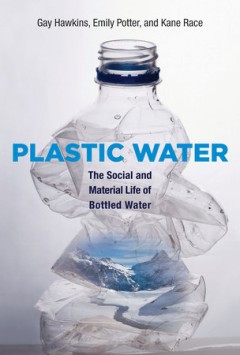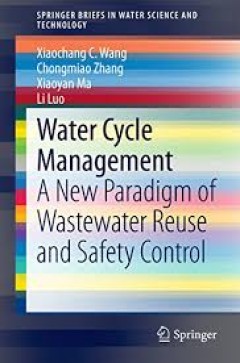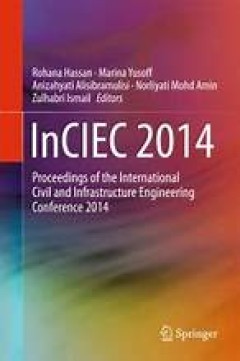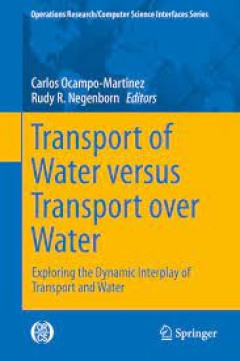Filter by

Plastic water: The social and material life of bottled water
How did branded bottles of water insinuate themselves into our daily lives? Why did water become an economic good—no longer a common resource but a commercial product, in industry parlance a “fast moving consumer good,” or FMCG? Plastic Water examines the processes behind this transformation. It goes beyond the usual political and environmental critiques of bottled water to investigate it…
- Edition
- -
- ISBN/ISSN
- 9780262329521
- Collation
- 1 online resource (xxiv, 260 pages) :illustrations
- Series Title
- -
- Call Number
- -

Water Cycle Management A New Paradigm of Wastewater Reuse and Safety Control
This book focuses on environmental engineering, and on wastewater treatment and reuse in particular, which is a vital aspect for countries and regions suffering from water shortages. It introduces a new water cycle management concept for designing water systems that mimic the hydrological cycle, where reclaimed water is produced, stored/regulated, supplied and used in a semi-natural manner so t…
- Edition
- -
- ISBN/ISSN
- 978-3-662-45821-1
- Collation
- -
- Series Title
- -
- Call Number
- -

InCIEC 2014
The special focus of this proceedings is to cover the areas of infrastructure engineering and sustainability management. The state-of-the art information in infrastructure and sustainable issues in engineering covers earthquake, bioremediation, synergistic management, timber engineering, flood management and intelligent transport systems. It provides precise information with regards to innovati…
- Edition
- 1
- ISBN/ISSN
- 978-981-287-290-6
- Collation
- Business
- Series Title
- -
- Call Number
- 650

Transport of Water versus Transport over Water Exploring the Dynamic Interpl…
This book aims at stimulating discussion between researchers working on state of the art approaches for operational control and design of transport of water on the one hand and researchers working on state of the art approaches for transport over water on the other hand. The main contribution of the book as a whole is to present novel perspectives ultimately leading to the management of an envi…
- Edition
- -
- ISBN/ISSN
- 978-3-319-16133-4
- Collation
- -
- Series Title
- -
- Call Number
- -

The Water We Eat Combining Virtual Water and Water Footprints
This book pursues a comprehensive, multidisciplinary approach in order to analyze the relationship between water and food security. It demonstrates that most of the world’s economies lack sufficient water resources to secure their populations’ food requirements and are thus virtual importers of water. One of the most inspiring cases, which this book is rooted in, is Italy: the third largest…
- Edition
- -
- ISBN/ISSN
- 978-3-319-16393-2
- Collation
- -
- Series Title
- -
- Call Number
- -
 Computer Science, Information & General Works
Computer Science, Information & General Works  Philosophy & Psychology
Philosophy & Psychology  Religion
Religion  Social Sciences
Social Sciences  Language
Language  Pure Science
Pure Science  Applied Sciences
Applied Sciences  Art & Recreation
Art & Recreation  Literature
Literature  History & Geography
History & Geography